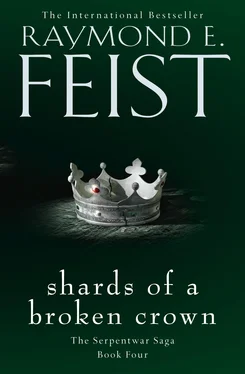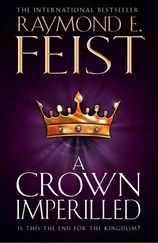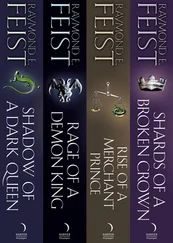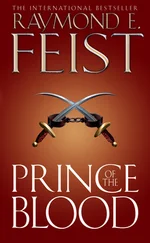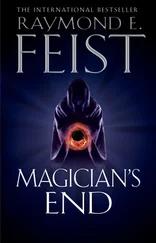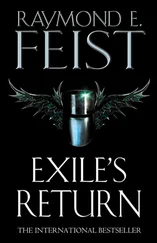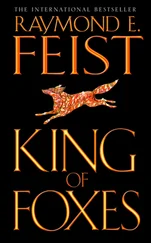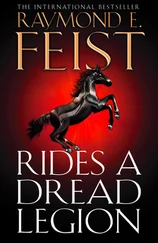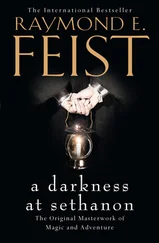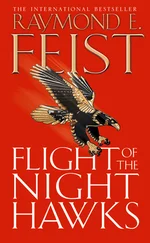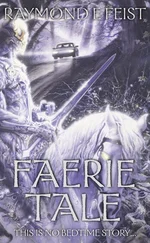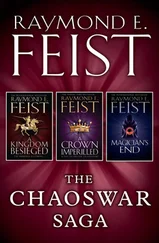From the expressions on the faces of those nearby, Jimmy surmised two things: the “rabbit” was probably a less wholesome dinner item than advertised, and most of the people nearby were hungry.
But some sort of order had been imposed, and armed men who seemed near to the point of killing for food merely watched with fixed expressions as the man passed holding out the meal. “How much?” asked Jimmy, not pausing.
“What have you?” asked the peddler.
Malar elbowed Jimmy to one side. “Begone, O stewer of cats! My master has no use for such foul-smelling garbage,” he shouted.
Instantly the two men were almost nose to nose, screaming insults at one another, and almost equally abruptly a deal had been struck. Malar gave the man a copper coin, a ball of yarn he had been carrying in his pocket, and a very old rusty dagger.
The man gave over the pot and hurried back to his campfire where a woman offered him another crock of the hot stew. He set out to find another customer. Malar motioned for Jimmy to move to the side of the road and squatted, holding the crockery. He held it out and spoke softly, “Eat first and give me what’s left.”
Jimmy squatted, not wishing to sit in the mud, and ate the stew. If it was rabbit, it had been a rabbit of diminutive stature, and even the carrots and turnips had a strange taste. Jimmy decided it best not to consider how long they had sat in some abandoned root cellar before that enterprising peddler had found them.
He ate half the contents of the bowl and gave the rest over to Malar. While his newfound servant ate, Jimmy looked around. He had seen enough military camps to recognize he had blundered into one. Warriors, camp followers, peddlers and thieves, all resting until they had a reason to move on.
Jimmy wondered about the reason for the gathering, and the reason that would make them move on. Many of the warriors were from the invading army that had ravaged the Western Realm the year before, but he saw enough Keshians and a few Quegans mixed in to decide that these were deserters, opportunists, weapons runners, and the dregs washed up in any backwater of a war.
Putting aside the bowl, Malar looked at Jimmy. “Young sir?”
“Let’s head into the city,” said Jimmy.
“And do what?” inquired the Valeman.
“Look for my brother.”
“I thought he was to go back east,” said Malar.
“That’s what he should do, but he won’t.”
“Why?”
“Because he’s …Dash.”
They moved through the tent village and headed toward the city gate.
• Chapter Three • Confrontations
PUG FROWNED.
The Keshian Ambassador’s smile was forced, almost painful, as he finished his latest message from his government.
“My Lord Gadesh,” said the Kingdom’s representative, Baron Marcel d’Greu, his own smile just as false. “That’s impossible.”
Pug glanced at Nakor, who sat to his right. The latest round of negotiations between the Kingdom and the Empire of Great Kesh was proving to be a simple restatement of the last round.
Nakor shook his head and said, “Why don’t we take a small recess, my lords, and give ourselves time to ponder these requests?”
Kalari, a Tsurani Black Robe who was representing his government, the Empire of Tsuranuanni, as a neutral observer, said, “Excellent idea, my friend.”
The two ambassadors retired to the quarters that had been provided to them, and Pug led Nakor and Kalari to another room, where Miranda waited next to Kalied, the leader of the most powerful of the three factions of magicians in Stardock.
Kalied appeared to be older than Pug, despite the fact Pug was nearly twenty years his senior. Pug appeared to be a man in his mid-twenties, his rejuvenation courtesy of the freed life energies that had been trapped in the Lifestone.
Miranda, looking like a woman in her mid-twenties, smiled at her husband. “Any joy?”
“None,” said Pug, taking a mug of ale offered by a student who was acting as servant to those representing the interests of Stardock in the negotiations between the Kingdom and the Empire of Great Kesh.
“I must confess,” observed Kalari, “these negotiations seem far more ritualistic than I anticipated.” He sipped at a hot cup of coffee and nodded in appreciation at the flavor of the brew. He was a bald-headed man of middle age, still slender and fit and possessing a penetrating pair of blue eyes. “Is it my unfamiliarity with the nuances of the King’s Tongue, or some lack of insight into the Keshian culture, or is this simply a restating of previous claims and demands?”
“No,” said Nakor, “there is nothing wrong with your appreciation of this situation.”
“Then what is the point?” asked Kalari. “My own Empire’s traditions include negotiations, but usually it’s between Tsurani Lords. I’m afraid your notion of diplomacy is a little foreign to me.”
Kalari had been sent by the Assembly of Magicians on Kelewan, to insure that whatever interests Tsuranuanni had in Stardock were represented. Trading between the former enemies, the Kingdom of the Isles and the Empire of Tsuranuanni, had been cyclical over the years. For nearly fifty years a major upheaval in Tsurani society had resulted from the rise to prominence of House Acoma and their innovative leader, the Lady Mara, the Servant of the Empire. Her son, Justin, had ruled the Empire despite several political plots to return the Empire to the older traditions Mara had set aside. Turmoil had resulted from many of the changes, at various times limiting trade between the two worlds to a trickle, but currently a stable period had endured almost ten years, and the Empire wished to see nothing disrupt their commerce with Midkemia.
Pug said, “Well, if you consider us to be Thuril, but with more swords, you might consider the needs we face.”
Kalari nodded. Thuril had been the only nation to resist his empire on the homeworld, and had forced the Empire to a guarded peace. “Well, since the Servant of the Empire overturned so many of the Assembly’s prerogatives, we’ve had to constantly relearn things. I think endless babble around a table to no point, though, may be a difficult process to master.”
Nakor laughed. “Actually, it’s really easy. That’s why diplomats do it so much.”
Kalari regarded the strange fellow. Nakor had been given his seat at the negotiations by Pug. Known as Milamber on the Tsurani homeworld, Pug was a figure of legend, almost as awe-inspiring as the Lady Mara. That fact alone had blunted some of the Tsurani Great One’s astonishment at Nakor being included in these sessions. To all outward appearances, the self-styled “High Priest” of some unknown order was nothing more than a ragged vagabond, perhaps a confidence trickster who played the fool. Yet there was something about the odd little man that made Kalari cautious of judging him too quickly. Behind his constant irreverent humor an intellect of great scope was at work, and every fiber of Kalari’s being told him a man of great magical ability also wore the guise of a common gambler recently turned man of religion. He might claim powers that came from the Gods, or merely “tricks” as he often commented, but Kalari sensed this was a being of power second only to Pug’s at the table.
Kalari put aside his nagging suspicions about Nakor. Whatever else, he did find the man from the nation of Isalan in Great Kesh amusing and amiable. “Well, then,” said the magician, “you’ll have to brief me on how best to proceed with this pointless wrangling.”
Nakor said, “Find someone else. I think them just as tedious as you do.” Nakor took a sip of ale. “Besides, the matter of how things end up has already been decided.”
Читать дальше
